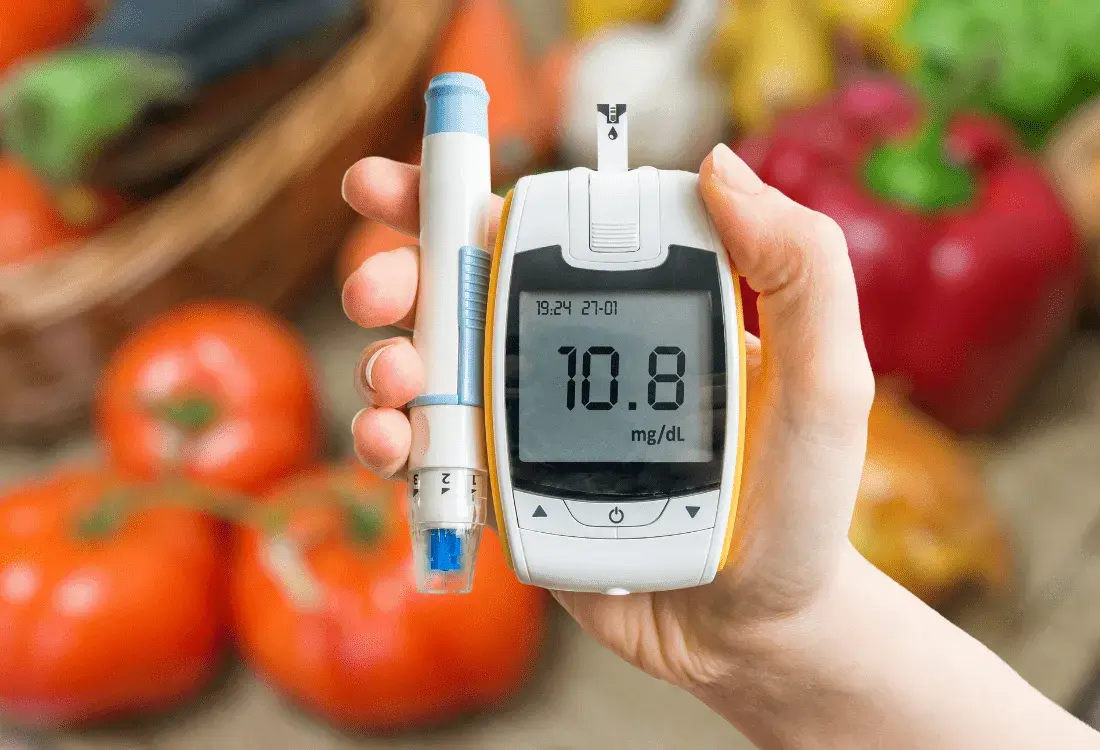Diabetes Awareness Week 2025: What To Expect On Your Diabetes Journey
Diabetes Week, the annual educational and advocacy event organised by Diabetes UK, will take place between June 9th and 15th, 2025. With figures from the charity suggesting that almost 4.6 million people currently have diagnosed type 1 or type 2 diabetes in the UK, and an estimated 1.3 million more living with undiagnosed type 2 diabetes, Diabetes Week is an important opportunity to raise awareness of the condition.
Despite the prevalence of diabetes, however, it’s very normal for people to have questions, worries, and fears about what lies ahead when newly diagnosed. So, whether you have been diagnosed with type I, type II, or another form of diabetes, this article will ease you into your diabetes journey from diagnosis to management, breaking down what to expect and how to tackle this new chapter step-by-step.
Step One: Understanding Your Diagnosis
One of the first things that your GP will do is to help you understand the type of diabetes you have and how this could affect your body and lifestyle. In general, diabetes impacts the way that your body processes glucose, but there are variations in how the condition works. Type I diabetes occurs when your body stops producing insulin, and this is often diagnosed in childhood or adolescence. Type II diabetes, which accounts for 88% of cases in the UK, develops when your body does produce insulin, but doesn’t use it efficiently or doesn’t produce enough of it.
Step Two: Accessing The Right Care For Your Condition
Managing diabetes is a lifelong journey, but it isn’t something you have to go through alone. Your GP will be able to direct you to various resources to support you, and you will probably require regular check-up’s, blood tests, and other screenings as part of your ongoing care plan. If you’re concerned, you may be able to request an appointment with a dietician to help design a meal plan that works best for you in making lifestyle adjustments, and in some cases, your GP may refer you to see an endocrinologist, who had a medical specialist who focuses on hormone-related conditions in the body. Mental health support may also be available in your area to help you adjust emotionally to life with diabetes.
Long-term, it’s important to book regular eye tests, blood pressure monitoring, and other health checks to keep on top of your overall health and avoid potential complications.
Step Three: Adjusting Your Lifestyle
The most important way of managing diabetes constructively is to make positive changes to your lifestyle. These don’t have to happen overnight, but can be implemented in small, gradual steps. Over time, this will make a big difference to your health and quality of life.
- Exercise: physical activity is a powerful tool in managing diabetes. Even small steps such as short regular walks or stretches can improve your sensitivity to insulin and help to regulate your blood sugar levels. Ideally, aim for 25- 30 minutes of activity at your own pace 4 to 5 days a week. This could be a walk, cycle ride, jog, swim, yoga, weight training, or anything else you enjoy. Feel free to start slow and build up.
- Monitoring your blood sugar: glucose monitoring is likely to become a strong part of your daily routine, especially if you have type I diabetes. This may feel like a chore at first, but over time will help you understand how food, exercise, stress and other factors can impact your blood sugar levels. Your GP will also teach you how to monitor and what your blood sugar targets should be.
- Diet and nutrition: at the heart of diabetes management is eating well-balanced healthy meals, as this is the key to keeping your blood sugar levels stable. A diabetes-friendly diet typically includes plenty of spinach, broccoli, peppers and other non-starchy vegetables, as well as lean proteins such as eggs, tofu or beans, or even chicken or fish if you eat meat. You can also enjoy rice, quinoa, and other whole grains, but this should be approached in moderation depending on your blood sugar levels.
Find Out More
To find out more about diabetes and the importance of regular testing to help spot the early signs of the condition, please contact the team at Suresign today by clicking here.
Image Source: Canva
Posts by topics
- self-testing kits (31)
- Home Testing Kits (28)
- Pregnancy tests (15)
- Uti home test kits (11)
- Home Blood Pressure & Pulse Monitor (9)
- Pregnancy (8)
- Blood Pressure Monitors (7)
- Vitamin D Testing Kits (7)
- 6-day Early pregnancy tests (4)
- Blood Test Kit (4)
- Iron deficiency test (4)
- Diabetes journey (3)
- Uncategorised (2)
- Urine Test Kit (2)
- Business Awards (1)
- Covid-19 (1)
- Frogs as pregnancy tests (1)
- Gestational Diabetes (1)
- Home Ovulation Tests (1)
- Managing Chronic Conditions (1)
- Pharmacy (1)
- Repeat UTIs (1)
- Twin Pregnancy (1)
- false positive (1)
Recent Posts
Subscribe to our blog
You May Also Like
These Related Stories

Why Pregnant Women Should Be Screened for Diabetes Earlier

Looking Back At Diabetes Awareness Week 2024





No Comments Yet
Let us know what you think